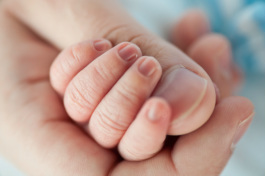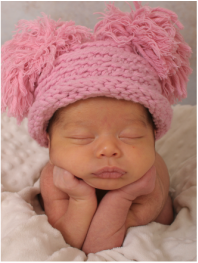Maryland Private Adoption / Independent Adoption
Private adoption in Maryland Versus Agency Adoptions:
What Is The Difference?

There are two primary types of domestic adoptions in Maryland – independent or private adoptions and agency adoptions through a public adoption agency / foster care agency or a private adoption agency. A private adoption, also known as an independent adoption in Maryland, occurs when the prospective adoptive parents and the birth family locate each other and complete the adoption process privately, usually through attorneys, rather than through an adoption agency. In a private adoption, birth families will relinquish their parental rights enabling the adoptive parents to take custody of the child immediately, instead of an adoption agency taking guardianship of the child for a period of time set by law before the adoptive parents are able to adopt the child. If desired, an independent adoption (private adoption) can provide much more direct contact between the parties, than adoptions completed through adoption agencies. Many adoptive parents and birth mothers prefer such direct contact or openness with each other instead of relying on an adoption agency to facilitate communication.
Matching an expectant parent considering adoption with hopeful adoptive parents
Maryland law prohibits adoptive parents from paying anyone except a licensed adoption agency to locate potential birth parents willing to place their child for adoption. Because an adoption agency will not be involved to present information about potential adoptive families to expectant parents in a private adoption, both parties must take an active role in locating each other, typically through the use of some form of advertising, adoption photolistings or profile websites, or networking. In a private adoption, adoptive parents typically use written publications such as the newspaper, the internet, or by communicating their interest in adoption through word of mouth to friends, family, and other acquaintances.
private adoption PRE-ADOPTION PROCESS

Once contact has been made, lawyers will usually step in to represent each party to complete the private adoption process. The attorneys will ensure that their clients understand their legal rights and responsibilities. The attorneys will make sure that all documents, including the exchange of medical and social background information of the birth parents, are obtained in accordance with the law, and will prepare and file all necessary paperwork with the court to finalize the independent adoption. This paperwork includes obtaining consents from the birth parents to the private adoption shortly after the child is born. In Maryland, a birth parent has thirty (30) days after the consent to adoption is signed to revoke the consent for any reason. If a birth father does not sign a consent, he may be served with an order allowing him an opportunity to object to the adoption. If he fails to file an objection in a timely manner, the adoption will proceed. Even if he does object, the adoption may still be able to proceed depending on the circumstances. Additional legal paperwork for the adoption may include negotiating and drafting post-adoption contact agreements should the parties wish to continue to maintain contact with each other after the child is born. This is known as an open adoption, whereas a closed adoption involves no contact between the parties. Post-adoption contact agreements may include a provision for the exchange of photographs, written updates about the child, or even for supervised visits on a predetermined basis. Lawyers will also seek to determine the applicability of the Indian Child Welfare Act and will obtain Interstate Compact on the Placement of Children (ICPC) approvals for interstate adoptions where the birth parents and adoptive parents are from different states.

In a private adoption, the parties' attorneys will also coordinate birth plans with the hospital where the child is to be born. Birth mothers may choose to allow the adoptive parents to be present at the birth and may allow them to see and/or hold the child shortly after the birth. Additionally, arrangements will be made with the hospital to try to have the child discharged directly to the potential adoptive parents upon the birth mother's consent to the private adoption.
ALLOWABLE ADOPTION EXPENSES IN MARYLAND
Finally, lawyers will oversee the reimbursement of potential medical, counseling, and/or living expenses as allowed by law. In Maryland, a birth mother may be reimbursed for medical, legal, and counseling expenses related to an adoption. As of October 1, 2013, a birth mother may be reimbursed for reasonable living expenses for food, clothing, and lodging if a doctor confirms in writing that a birth mother is unable to work or support herself due to medical reasons associated with the pregnancy or birth of the child. Additionally, a birth mother may receive reimbursement for reasonable transportation costs for medical care associated with the pregnancy and/or birth of the child or court appearances associated with the adoption, and reasonable expenses for food and lodging related to a court appearance for the independent adoption. If the adoption involves an interstate adoption, however, another state's laws may apply; therefore, it is important to have an experienced adoption attorney representing each party to the adoption, that is familiar with the applicable laws.
If you would like more information on private adoption in Maryland, please contact us today.
If you would like more information on private adoption in Maryland, please contact us today.

